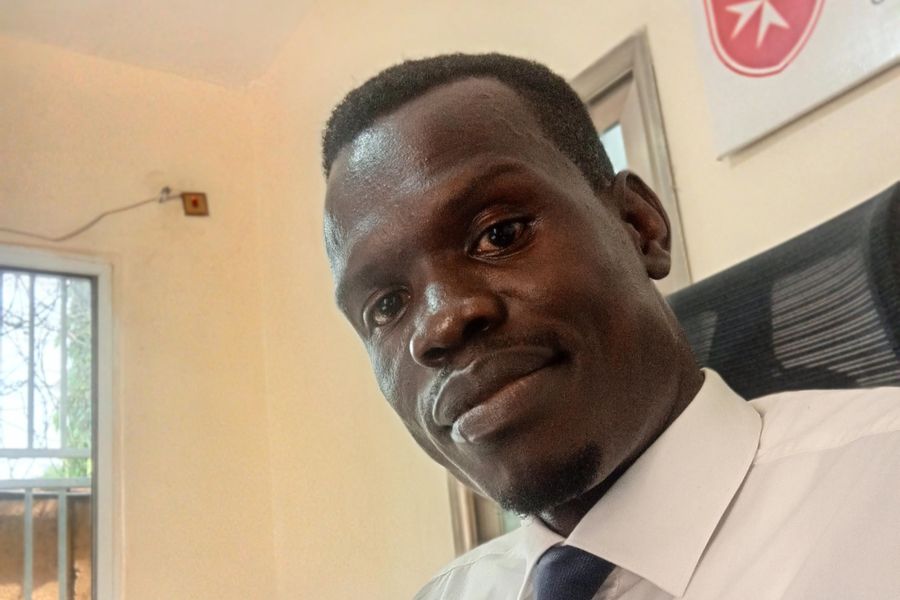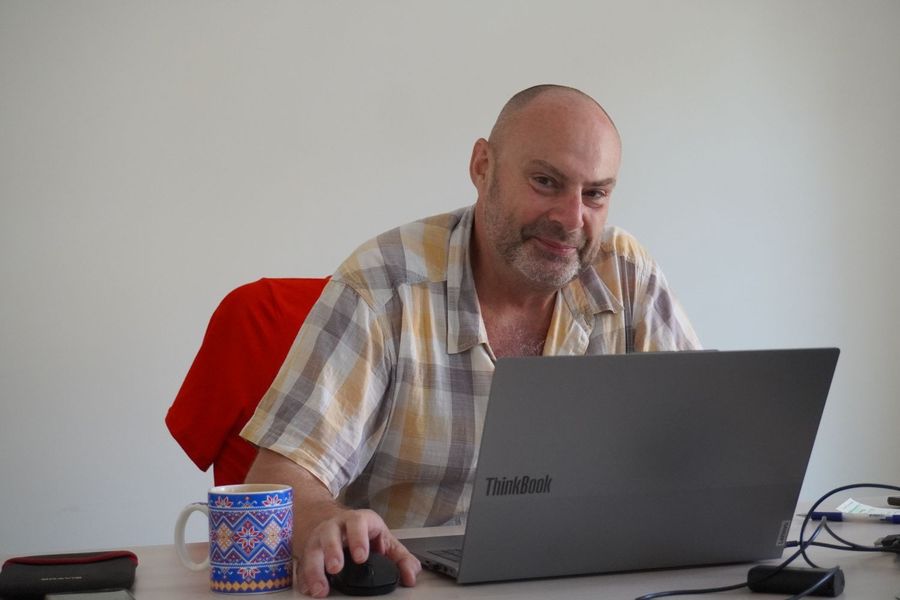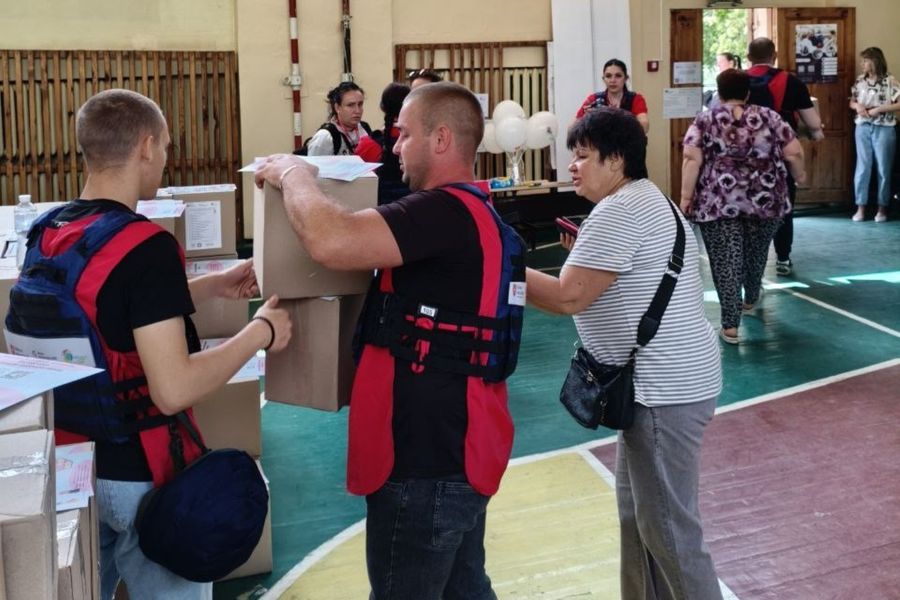Safety and Security at Malteser International
Whether in Ukraine, Gaza, Sudan, or other crisis areas: Receiving and providing aid has become increasingly more dangerous in recent years. According to UN reports, 2024 was the deadliest year in history for humanitarian aid workers. And in 2025 so far, another 265 people have been killed, 115 kidnapped, and numerous more injured while working to provide aid. So how can we ensure the safety of the people we want to support and that of our employees? We have asked two of our in-country security specialists about their vital work.

Hello Olexandr, hello Alison, you both work for the safety and security of Malteser International staff and the people we serve, in Ukraine and in South Sudan. What are the main tasks of your job?
Alison: As Safety and Security Manager in our Malteser International office in South Sudan, I develop the “Country Safety and Security Management Plan”, “Standard Operating Procedures”, and “Security Rules”. I conduct security risk assessments, coordinate security trainings such as HEAT (Hostile Environment Awareness Training), gather and analyze security information, and provide timely, reliable, and credible security advisories to ensure staff can operate safely in complex and high-risk environments.
Olexandr: Shortly, my role as Security Advisor is to support our staff in staying safe while doing their vital work in a rapidly changing environment during ongoing full scale armed conflict. My goal is to keep our staff safe and ensure that we can reach people in need without unnecessary risk. My role bridges operational safety with organizational accountability, ensuring both staff protection and mission delivery in a conflict-affected setting. In addition to what Alison already mentioned, this includes coordinating safe access and staff movements, and responding effectively to incidents and emergencies. I provide strategic and operational security guidance and regular security briefings and training to build staff awareness and resilience. I maintain close coordination with local authorities – civilian and military alike in Ukraine – UN agencies, and our NGO partners. Ultimately, my work ensures that donor-funded programs are implemented safely, responsibly, and with full regard to duty of care and humanitarian principles.

How do you prepare both national and international staff, mentally and physically, for high-risk deployments, for example in active war zones?
Alison: For both international and national staff, we conduct timely, context-based security briefings. We provide basic safety and security training internally and through specialized partners. And we share daily to weekly security updates, which is also important to build situational awareness. For international staff, we conduct pre-deployment briefings. In South Sudan, we furthermore internally promote stress management through our Mental Health Program to build staff resilience.
At Malteser International South Sudan, we emphasize strong acceptance strategies, regular security briefings, strict adherence to Standard Operating Procedures, thorough contingency planning, and continuous coordination with both internal Security Focal Points and external UN/INGO security networks.
Olexandr: In Ukraine, all staff, all of us – national and international – operate under constant threat. While the risks increase significantly the further east you go, even Kyiv, the capital, is frequently targeted by severe missile and drone attacks. The reality is that there is no entirely safe location in the country, and that makes self-protection not just a concept, but a daily practice for humanitarian workers.
Preparing both local and international staff for high-risk deployments is a critical part of my role as Security Advisor. In Ukraine, our preparation strategy includes a blend of psychological readiness, practical skills, and procedural clarity to ensure staff are confident, informed, and resilient, so they can do their jobs effectively and return home safely. This includes realistic briefings, stress management tools, and peer support. For international staff, we offer cultural and situational orientation pre-deployment. And of course, there are mandatory safety and security trainings like HEAT and regular drills and simulations. I also provide staff with daily security updates. On mission, all staff are tracked and need to check in regularly.

How do we ensure that the people we serve are protected in insecure environments while receiving aid, especially relief goods?
Alison: In South Sudan, we work closely with local communities and authorities. Before and during a mission, we continually assess evolving security risks and adapt our aid delivery strategies. In this way, we aim to reduce exposure to dangers and safeguard the dignity and well-being of those we serve.
Olexandr: Especially in eastern Ukraine, where frontline towns are regularly shelled and drones often monitor civilian movements, organizing safe, dignified, and conflict-sensitive aid distributions is a matter of life and death. To ensure safety, we never, for example, conduct distributions in open, highly visible, or densely crowded public areas that could become targets. We, as well, coordinate our activities closely with local authorities and community leaders to assess the safest time and location. We often use mobile delivery points or door-to-door methods, and when we must distribute from a central point (e.g. from a truck), we keep it low-profile, fast, and orderly and do everything to avoid long lines. If the situation changes unexpectedly, we have trained security personnel in place, all teams have emergency communication plans, and vehicles are ready for rapid withdrawal if needed.
Another very important point: We take care to ensure that aid distribution does not trigger social tensions or resentment. This includes clear communication, ensuring fair access, and avoiding any signs of favoritism.
By applying all these and more measures, we work to ensure that aid delivery never becomes a risk to those we are trying to help. Because no one should have to choose between safety and support.
August 2025








